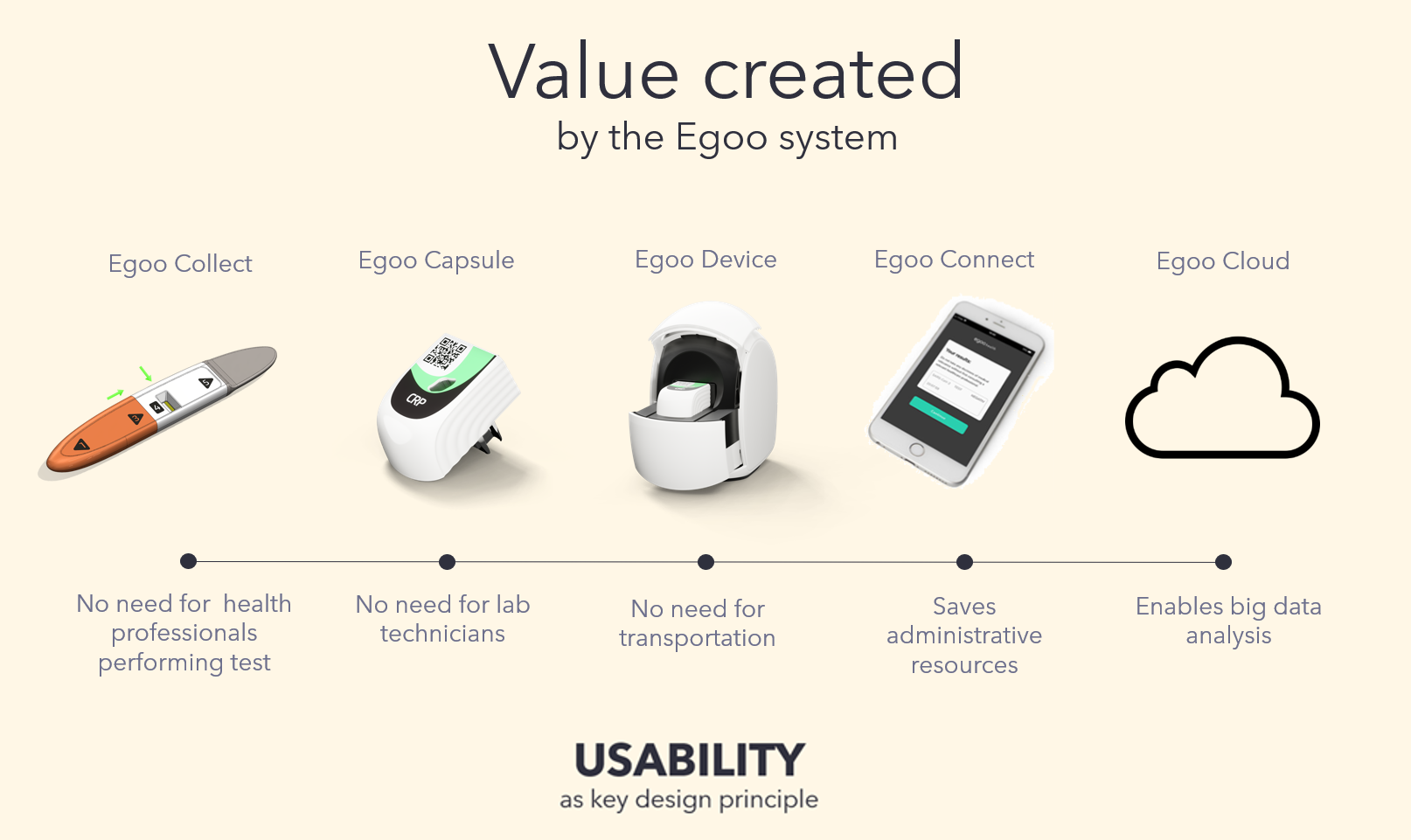HC Andersen Capital: Qlife sector update
Qlife peer LumiraDX released the first survey among clinicians in the UK for POCT (Point of Care Testing) beginning of December 2022. The survey is single blinded and aims to measure the clinician’s perception of POCT pros and cons.
This is very interesting news, because Qlife launch their first ”assay” addressing the CRP market in Europe in the first quarter of 2023. This ”assay” will be launched under the Egoo Health brand.
Feedback from the survey, supports the 3 major trends within the POCT-market.
Main conclusions
- PATIENT CARE: Clinicians ranked ‘Improved quality of care’ as the No.1 benefit of POCT, over operational costs and time saved
- STAFF TIME: The top concern for clinicians when ordering a laboratory (not POC) test was wait time. 81% of clinicians said reduction of staff time for patient follow-up supported by POCT was extremely to moderately important to them.
- LOCATION: Nearly three-quarters of clinicians estimate the role of community health is expected to expand, anticipating high the growth from pharmacy and a centralized/community hub.
- ENVIRONMENT IMPACT: 83% of clinicians acknowledged the potential of POCT in reducing the carbon footprint of testing by reducing patient visits, was moderately to extremely important in their adoption of POCT.
- FUNDING: Most funding for POCT today comes from individual practices and Primary Care Networks (PCNs). However, going forward nearly half of the clinicians feel funding from Integrated Care Systems/Boards will increase.
Read the full announcement here: LINK.
POCT market
Three major trends post COVID:
- Healthcare decentralization – increased demand for testing outside hospitals to save costs.
- Chronic diseases and increase in ageing population - Chronic diseases prevalence increases by 26% to 56% depending on couthe ntry.
- Growing health interest - 60% of Physicians are prioritizing a shift to prevention and wellbeing
The market is characterized by several players with different solutions to the same trends mentioned above. In relation to this article, Qlife has mentioned the following peers as relevant. CUE Health focus on the US and LumiraDX focus on the US and UK. Both companies are listed on the Nasdaq.
The Covid pandemic has been a game-changer for most POCT companies, due to a rapid number of tests in new channels i.e., test centers, at home, and in airports. The above-mentioned companies got valuable feedback about their products from a large quantity of users and could quickly adapt to market demand. Normally it could take years to gather this amount of feedback.
How big is the POCT market?
In CUE Health’s latest filing, they estimated the POCT market to be 20 bn. USD in 2021 and the home testing market at 10 bn. USD. The first part is estimated at 50 bn. USD in 2025. This potential market size allows for several players with different Technologies. Qlife primarily focuses on two types of tests ”assays” CRP (C-reactive protein) and PHE (Amino acid in proteins) in the short to medium term.
Allied Market research estimate the market size of CRP at several billion USD.
Due to the size of the market, QLife’s challenges are more related to scaling the business and building a strong brand around the Egoo Health eco-system.
Qlife released further details regarding when and where they launch CRP on the 23rd. of January.
Read the announcement here: LINK.
All Qlife’s activities are branded under the Egoo Health brand and Qlife is one of few European companies within this sector.
The feedback from the Egoo Health community is of great value in terms of product development, product placement, and market demand.
Egoo Health product line

Even though they address the same mega-trends, there are differences too. Qlife’s focuses are on clinics in collaboration with patients/clients. LumiraDX’s hardware is 5x more expensive than Qlife’s. The blood sampler from Qlife is more advanced, and by that better accuracy and simplifies biomarker testing, so laypeople can help Generate the necessary information in treatment courses and for preventive care.
LumiraDX is already in the market with several assays, with a bias in US and UK. But the market trends offer great opportunities for several players with different applications and assays.
The market trends are clearly leaning towatowarde testing being the future of healthcare. Qlife met with Dr. Olivia Lesslar who provided some insights into how at home POC testing can be used to bridge the gap between patients and health practitioners. Listen to this interview with Dr. Olivia’s interview as she expands on how at home biomarker testing is beneficial for both the patient and the health practitioner.
Watch the interview with Dr. Olivia Lesslar: LINK.
Qlife Holding AB is a med-tech group that strives to revolutionize the market for clinical biomarker and virus tests. By enabling tests at home as a complement to tests in healthcare, access to important health information is facilitated, which can contribute to better treatment and potentially prevent diseases.
Qlife Holding was formed in October 2019 and received the certification ISO 13485:2016 the same year, which means that Qlife meets all requirements for the manufacture and sale of in-vitro diagnostic analyzers and reagents. The first capsules in the company's product, Egoo Health Platform, were CE marked for professional use in early 2020. The company has patent protection for key parts of its technology.
Qlife Holding AB is listed on Nasdaq First North Stockholm with ticker QLIFE.
This is a press release from HC ANDERSEN CAPITAL https://hcandersencapital.dk/.
Disclaimer: HC Andersen Capital receives payment from Qlife Holding for a Digital IR / Corporate Visibility subscription agreement.
HC ANDERSEN CAPITAL
Claus Thestrup, CEO Sweden
claus@hcandersencapital.dk

